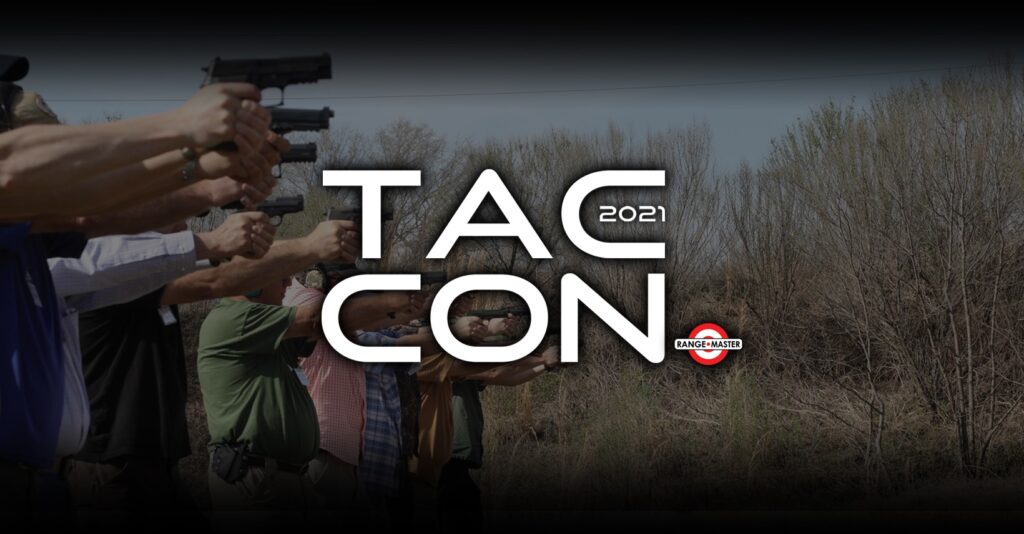
This weekend, I’m spending three days at the Rangemaster Tactical Conference. It’s an annual gathering of some of the top self-defense instructors in the country, who get together to teach short blocks of their material and to learn from their colleagues. Some of the attendees are regular people who are interested in improving their defensive skills and knowledge, and get the opportunity to train with excellent instructors who may not otherwise be accessible to them. Others, like me, are themselves instructors. Those are the ones I want to talk about today. One of the themes I return to regularly here is how to tell if you’re getting your information from reliable sources, and right here in Dallas this weekend is one of the best tells.
It’s not necessarily that you need to limit your sources to folks who attend Tac-Con, or who have trained with certain instructors. For that matter, simply attending certain events or classes isn’t a clear “go” or “no go” to decide if you should trust what someone says. However, the fact that they are willing to continue to be students? That’s super important. Conventional wisdom changes, and what we once knew to be to be the best ways to do things haven’t always proven out to be so, especially as gear and techniques have been tested, broken down, and improved upon. That’s true of almost every field of expertise out there – you can probably think of examples in your hobbies and day jobs of how things were done twenty years ago versus how things are (or at least should be) done today. The personal protection sphere does the exact same thing and if you have an instructor or other authority who isn’t willing to go find out what’s changed around them, how can you trust that they’ll give you today what’s known to be best today or at least yesterday, rather than three, five, ten, or more years ago?
One of the reasons that people who hang out instructor shingles or become social media experts aren’t willing to train is because they might find out they were wrong. That’s an awful feeling, not the least because it means you’ve been relying on information that’s gone bad when you’ve been working so hard to improve and save lives. It means we are fallible. Here’s the thing though: everybody gets something wrong at some point. It’s likely not even our fault when we’re wrong too. We might have been taught something not quite right when we didn’t know enough to separate the good from the bad ourselves. Best practices might have changed while we weren’t paying attention. It happens. And that’s okay. What’s more important is how we’re willing to manage it. And as a student, what’s more important is how your trusted sources manage it. Being honest about the journey and educating others about mistakes made and fixed? Those are wonderful opportunities to model how we can all improve from where we are today. But that’s not possible unless a person is willing to go find out if they’re wrong. And that means going to classes, with the open mindset of “what can I learn?” instead of “what can I prove?”
Sometimes there are in fact multiple right, good, or decent answers. The best teachers will know all of them, and all the not-so-excellent answers too. They’ll know the hows and whys and if they don’t, they’ll have a pretty good idea of where to go to find out. Genuine questions aren’t answered merely with “because I said so” and rarely even with “because so-and-so said so.” In fact, they might garner more than you wanted as an answer, if you let the instructor go down the rabbit hole. There are, of course, times and places for the more concise statement, especially in front of a classroom or in many places on social media. But if it becomes clear that a self-proclaimed expert doesn’t have much knowledge beyond that statement? Maybe they haven’t really considered all of the angles. Events like Tac-Con or attending other instructors’ classes would help them do that, if only so that they can more clearly articulate why they disagree with a position. If someone you are using for information isn’t going to them, then how are they forming the relationships and engaging with their professional colleagues that would allow them to hash out these kinds of debates?
I won’t lie though. One of the reasons I go to Tac-Con is definitely to see my colleagues who have become friends, even family of choice. Like many areas of interest, the community is the best part. And for those of us who are on our own? They might be one of the best ways to discover people who can stand in for so many of those roles that you haven’t filled in your life through more traditional relationships. The professional and learning opportunities are priceless, and they’re what I’m bringing back to you. The personal feeding of the soul? That’s priceless too, and that’s what I’m bringing back for me. See you all on Monday.




